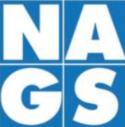Youth Gambling Study 2022 – Qualitative Research
About the study
This study explored four interrelated topics on gambling, gaming and simulated gambling amongst young people aged 12-17 years in NSW:
- youth gambling transitions
- parental and other influences
- new and emerging online gambling advertising, and
- resilience and protective factors.
This research builds on the NSW Youth Gambling Study 2020 to develop a deeper understanding of youth gambling, which will inform public health interventions to reduce gambling-related harm.
The methodology
The study explored gambling, gaming and simulated gambling among young people using a qualitative methodology involving online communities and in-depth interviews with 89 young people in NSW*.
- Three online communities were held over seven days, where participants used an online platform to engage in activities and discussions and respond to specific questions.
- 47 in-depth interviews with 18 at-risk/problem gamblers, 22 non-problem gamblers, and seven non-gamblers.
*Five young people participated in both the online communities and the interviews.
Key findings
- Adolescents in this study reported varying gambling transitions as they grew up. Non-gamblers maintained a stable pattern of no or little gambling from childhood. Many non-problem gamblers increased their gambling in their teens, indicating a pattern of progression but not to problematic levels. Some non-problem gamblers reported a transitory pattern with decreased gambling in their later teens. Gambling in the at-risk/problem gambling group intensified through adolescence.
- The study supports previous findings that young people’s gambling attitudes and behaviours are shaped through social processes involving numerous changing sources of influence as they grow up. These include parents, peers, gambling advertising, sports interests, gambling opportunities, and monetary and simulated gambling products. These sources can exert risk and protective influences.
- Young people report an unprecedented level of influence from a wide range of sources that promote gambling, and that permeate their home, school, social, media and digital environments. They report being inundated with promotional gambling messages in their everyday lives, especially sports betting adverts and adverts for social casino games which they interpret as promoting gambling.
- Protective strategies and environments need to be multi-faceted to tackle these multiple areas of influence, in alignment with a public health approach.
- The young people in this study want environments that prevent gambling harm for young people, with tighter regulation of gambling and simulated gambling products, far less advertising, age-related restrictions for simulated gambling features, and gambling education in schools.
Findings from this research will inform the education and awareness work of the Office of Responsible Gambling, particularly the content and targeting of additional resources for youth.
Suggested citation
Hing, N., Lole, L., Thorne, H., Rockloff, M., Sproston, K., Le Guyader, F., Hodge, N. & Sellers, L. (2023).
NSW Youth Gambling Study 2022: Qualitative Research. Sydney, Australia: Office of Responsible Gambling.

























